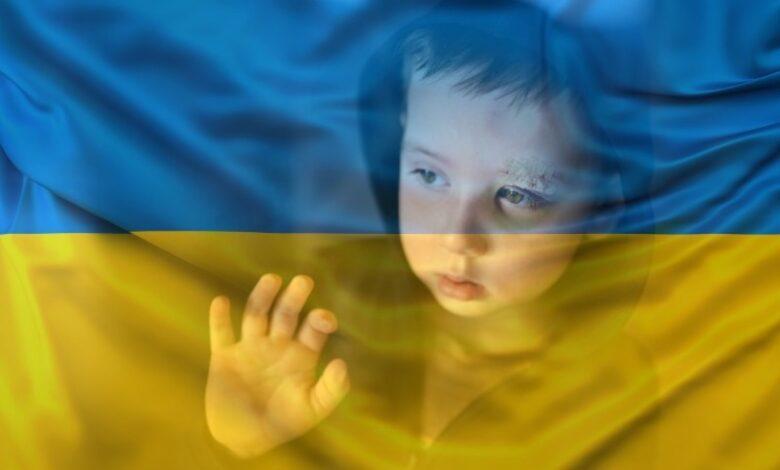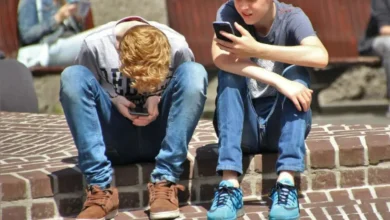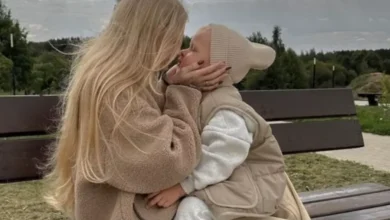Ombudsman Dmytro Lubinets spoke about the problems of returning Ukrainian children from Russia

The deportation and disappearance of children is one of the darkest and most pressing topics in the shadow of the full-scale war that Russia is waging against Ukraine. According to official data, more than 1,300 Ukrainian children managed to return home, but about 20,000 — according to approximate estimates — are still in Russia or in the occupied territories. Some of them lost contact with their families, some were taken to the interior of the country, their names, documents, and citizenship were changed. About the scope, mechanisms, challenges and examples of such practice told Verkhovna Rada Commissioner for Human Rights Dmytro Lubinets.
How many children were returned and why we do not know the exact number of those deported
According to the Ombudsman, as of today, 1,324 children who were forcibly taken to the territory of the Russian Federation or remained in the occupied territories have been returned to Ukraine. However, the exact number of Ukrainian children still held outside government-controlled territory is unknown.
The problem is that Ukrainian institutions do not have access to the temporarily occupied territories, and the Russian side refuses to provide any information – both to Ukrainian structures and international organizations, in particular the International Committee of the Red Cross or UN agencies. Thus, Ukraine cannot even document the stay of individual children in the Russian Federation without external evidence.
What the return process looks like: pressure, intermediaries and documentary traps
Russia does not officially recognize the deportation of children and, according to Lubinets, actually shifts the responsibility to the Ukrainian side, demanding documents proving that a particular child is of Ukrainian origin, has relatives in Ukraine and wishes to return. Without a complete set of papers and the corresponding legal chain, a return is impossible. Moreover, the Russian Federation considers the return of each child as an individual exception, and not as a result of a systemic criminal policy.
What affects Russia’s position: publicity and international pressure
Lubinets admits: publicity sometimes changes the situation. In particular, it was after the International Criminal Court’s arrest warrants for Putin and Lvova-Belova, issued for the illegal deportation of Ukrainian children, that Russia began to return children from time to time – through intermediaries, often after months of pressure. After the creation of an international coalition dealing with the return of deported Ukrainian children, in some cases it was possible to achieve results, albeit with considerable effort.
However, the process remains difficult, slow and highly selective. As an example, the ombudsman cited the story of a girl who was returned from Belgorod only after her mother spoke at a special meeting of the UN Security Council. Until this year and a half, none of the requests gave results.
“Parenthood” for money: financial motivation of Russian adoptive families
Another shocking aspect is the use of Ukrainian children as a source of funding. As Lubinets noted, families adopting Ukrainian children in Russia receive monthly cash payments, the size of which depends on the region, the child’s status (for example, a higher rate for a child with a disability), as well as the number of children in the family.
Most of such foster families live in remote areas of Russia, in particular in Siberia. There are known cases when children were in the same clothes in which they were taken out of Ukraine for years. They were not provided with basic things, and there was no question of any care or warmth.
Ideological re-education: children are made to forget who they are
According to the ombudsman, after deportation, Ukrainian children’s documents are changed, they are forced to use the Russian language, Russian identity is imposed and the role of the Russian Federation as a “liberator” is glorified. They are instilled with the idea that they should become “soldiers of a great power”, and therefore – are being prepared for future use as cannon fodder.
Lubinets told the story of a teenager from Mariupol who was returned to Kyiv in December 2022. He left Russian territory through third countries. When the ombudsman met him, he was still wearing the same tracksuit in which he was deported. His new “parents” did not buy him any new clothes. Their motivation was purely material — and the boy himself was only a tool for them to receive payments.
Why Not All Stories Become Public: Risk and Tactics of Silence
According to Lubinets, most cases of children’s return are not disclosed. This is a conscious decision of the Ukrainian side, which understands that excessive publicity can lead to increased obstacles on the part of the Russian Federation. In some cases, after a public outcry, Russia deliberately began to hide children or change their place of residence.
Only in certain exceptional situations is information about the child released into the public space — and then only after the child’s return. Children’s photos are not published, routes are not disclosed, in order to protect those who help and not to disrupt future operations.
How children are found and who helps in their return
Searching for children begins with confirmation of whereabouts. The Commissioner’s team establishes where the child is, what new documents she has, who is registered as a “guardian”. Then the search for legal and diplomatic solutions for physical return begins.
In some cases, Ukrainian representatives go to the territory of the Russian Federation. These trips are prepared in cooperation with diplomats of third countries, in particular Qatar, who guarantee security. It was thanks to such coordination that it was possible to return a number of children in the most difficult cases.
This is done by separate groups in various institutions, including the Office of the President, structures involved in the BringKidsUA plan. Without the participation of high-ranking officials, recognized mediators and international support, no such operation would have been possible.
The position of the Vatican: support from the Pope
The issue of deportation of Ukrainian children is raised at every international meeting. The ombudsman noted the active participation of the Vatican, as well as the willingness of the newly elected Pope to help in humanitarian matters. For the first time since the beginning of the full-scale war, the Vatican publicly declared its readiness to participate in the return of the children and to coordinate actions with the Ukrainian side.
Ukrainian children who were illegally deported, re-registered, forced to remain silent or forced to forget their names are not only victims of war crimes. This is evidence that Russia is fighting not only for territory, but for consciousness and the future. And this fight is extremely dirty. The return of each child is the result not only of diplomatic efforts, but also of pressure, risk, difficult decisions and almost always a fight against emptiness instead of dialogue. The Ukrainian team does not stop working, but for many families the wait still continues. And no number, even 20 thousand, can convey the scale of this silence.





